Book Meme/Book Memories
I was reading Mendi Obadike's latest post on book memories or her "book meme" with interest (I liked the anecdotal timeline--put me in mind of cataloging a personal library autobiographically. A little High Fidelity moment but with greater maturity). I thought, 'hey, this is a cool exercise.'
Then I got tagged. Good timing. When I began this I was cataloging all my books in preparation for boxing them up. It was something of an autobiographical experience; handling them I had a visceral sense of the time during which they were purchased/gifted/etc, why I was reading them, and what they meant to me (then and now). BTW I'm bad at limitations, so the whole "one book" requirement went out the window from the start, even so I left off Audre Lorde's Sister Outsider(! thanks Mendi for that memory jog) and a bunch of other works. Oh, the other thing is that a number of the books have been reprinted with different covers; the visual representations here are often some steps away from the referents of my aforementioned visceral memories.
So here 'tis.
1. One book that changed your life?
 Oh forget it, I've needed more than just one life change thusfar.
Oh forget it, I've needed more than just one life change thusfar.The Bluest Eye, by Toni Morrison. I started reading this at a family friend's apartment in NYC when I was ten years old. We were visiting for just a few days and I didn't get to finish it. I would read it periodically as I found it, finishing it when I was twelve. I think it hooked me because of the repetition of "See Dick and Jane..." with typeface that accelerated and and ran it together like a scream, or a living modernist (industrial age) entity that a small colored child couldn't be expected to outrun. It was the first time I had read about the inner life of little black girls like me, a profoundly revelatory experience.
The Man Who Cried I Am, by John A. Williams. Also read in childhood. I think this was
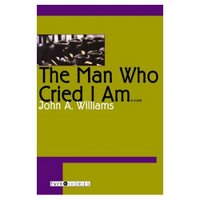 the first time I encounted someone articulating something I had been feeling about being African American in the U.S. It was in somewhat negative terms: the idea of the limits of blackness as it
the first time I encounted someone articulating something I had been feeling about being African American in the U.S. It was in somewhat negative terms: the idea of the limits of blackness as it 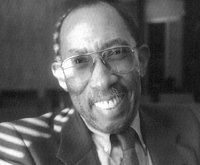 was then configured, but I realized I too wanted to be able to fully express who I was as a human being. Later, Julius Lester's first autobiography, All Is Well (out of print, Lester pictured left) would give me a more mystic sensibility of the same theme. Oddly, whenever I think of William's book Neil Diamond's operatic pop song, "I Am...I Said" trumpets in my head.
was then configured, but I realized I too wanted to be able to fully express who I was as a human being. Later, Julius Lester's first autobiography, All Is Well (out of print, Lester pictured left) would give me a more mystic sensibility of the same theme. Oddly, whenever I think of William's book Neil Diamond's operatic pop song, "I Am...I Said" trumpets in my head.The Unbelonging, by Joan Riley. This was a harshly unforgiving tale, and what struck me about it was that
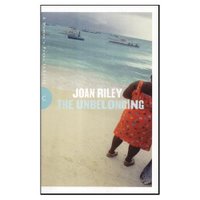 Riley didn't tie it up in a pretty bow, and she wasn't repentant about not writing an uplifting tale about Hyacinth, a little black girl having emigrated to Britain, during the Windrush immigrations, the first generations if emigres from the West Indies. Colonization was an ongoing reality and some immigrants still thought Britain was the Motherland or the land of milk and honey. It is a racial and social nightmare for her, and she cleaves to memories of Kingston, Jamaica like salve, but Britain and time alters both her and her former island home and she can't find a place of peace in either geography.
Riley didn't tie it up in a pretty bow, and she wasn't repentant about not writing an uplifting tale about Hyacinth, a little black girl having emigrated to Britain, during the Windrush immigrations, the first generations if emigres from the West Indies. Colonization was an ongoing reality and some immigrants still thought Britain was the Motherland or the land of milk and honey. It is a racial and social nightmare for her, and she cleaves to memories of Kingston, Jamaica like salve, but Britain and time alters both her and her former island home and she can't find a place of peace in either geography.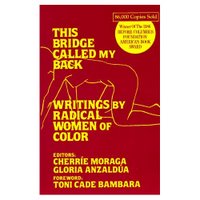 This Bridge Called My Back, by Cherríe Moraga and Gloria
This Bridge Called My Back, by Cherríe Moraga and Gloria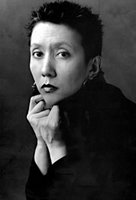 Anzaldúa, Dangerous Music (out of print) by Jessica Hagedorn (pictured right), and Nappy Edges by Ntozake Shange, I was a teenager living away from home for the first time rehearsing a part in Shange's play, Spell 7: A Theater Piece in Two Acts, and I would read Nappy Edges (and Sassafrass, Cypress, and Indigo) at night to remind me of visions and the possibilities of my own voice. Dangerous Music was my first introduction to Pilipina American writer Hagedorn and this group of women of color (Hagedorn,
Anzaldúa, Dangerous Music (out of print) by Jessica Hagedorn (pictured right), and Nappy Edges by Ntozake Shange, I was a teenager living away from home for the first time rehearsing a part in Shange's play, Spell 7: A Theater Piece in Two Acts, and I would read Nappy Edges (and Sassafrass, Cypress, and Indigo) at night to remind me of visions and the possibilities of my own voice. Dangerous Music was my first introduction to Pilipina American writer Hagedorn and this group of women of color (Hagedorn,  Shange, and sometimes Thulani Davis) writing together and fashioning new creative languages in San Francisco. Dangerous Music (long out of print) was a mix of poetry, fantasy, memoir, and mythology and it captivated me.
Shange, and sometimes Thulani Davis) writing together and fashioning new creative languages in San Francisco. Dangerous Music (long out of print) was a mix of poetry, fantasy, memoir, and mythology and it captivated me.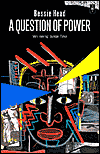
A Question of Power, by Bessie Head. In college I learned about Bessie Head's challenged life as a mixed-heritage person in South Africa and Botswana and her writing; what she wrote about the abuses and uses of power was another revelation. There is a meditative and slow mythic quality to her short stories, but A Question of Power with its hallucinatory passages was a wrestling match to read, and I loved it. I was sorry never to have had the opportunity to hear her read or talk about her work.
 I cannot omit Gorilla My Love, by Toni Cade Bambara and Guests in the Promised Land, by Kristin Hunter Lattany. I would guess that Bambara and Hunter Lattany (who was just Hunter when I was reading her) kept me company as
I cannot omit Gorilla My Love, by Toni Cade Bambara and Guests in the Promised Land, by Kristin Hunter Lattany. I would guess that Bambara and Hunter Lattany (who was just Hunter when I was reading her) kept me company as a child. I felt rewarded and gifted everytime I could read their characters; they knew a secret language. I recently said to a black filmmaker that black girls, and boys for that matter, are rarely shown as innocents, they are mainly shown with that quality stripped away, as though they perhaps had it in infancy but lost it soon thereafter, falling away like the crust of belly button scabs. Bambara and Hunter's characters had to know more at a young age than "Dick and Jane," but they always retained a measure of innocence and wonder.
a child. I felt rewarded and gifted everytime I could read their characters; they knew a secret language. I recently said to a black filmmaker that black girls, and boys for that matter, are rarely shown as innocents, they are mainly shown with that quality stripped away, as though they perhaps had it in infancy but lost it soon thereafter, falling away like the crust of belly button scabs. Bambara and Hunter's characters had to know more at a young age than "Dick and Jane," but they always retained a measure of innocence and wonder.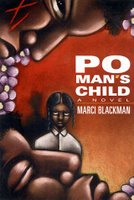
Po Man's Child, by Marci Blackman. I read this book and thought, who wrote this?! Who is this queer child of Morrison (maybe Morrison and Percival Everett?) who dared to take the symbol of the chokeberry tree and push the boundaries of African American physical memory? I am in awe of Blackman's abilities. Everybody needs to read this book and be troubled and moved.
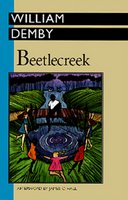 2. One book you have read more than once?
2. One book you have read more than once?I loathe admitting this, but I don't tend to read a book more than once, except the media and cultural studies texts I teach, although handling all my books has filled me with a longing to revisit many of them. Some exceptions that have been re-read are Morrison's The Bluest Eye and Song of Solomon, Bessie Head's A Question of Power, Maru and Collector of Treasures some of the Harry Potter books (now I'm really showing my drawers--but I had to re-read them before the movies came out...!). Book I feel greatly compelled to re-read: Beetlecreek by William Demby.
3. One book you would want on a desert island?
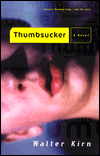 Well If I'm trying to survive, probably an assortment of the Where There Is No Doctor books, but I'd still need to have some pleasure and spiritual
Well If I'm trying to survive, probably an assortment of the Where There Is No Doctor books, but I'd still need to have some pleasure and spiritual nourishment after doing my own dentistry, so whether it's pure survival or having fun in a non-global warming sun then Walter Kirn's Thumbsucker, all of the Michael Nava mysteries with gay Chicano lawyer Henry Rios, and Zadie Smith's White Teeth which appropriately ends on an island and has elements of Henry James and P.G. Wodehouse (see below). Each of these writers has a way with language that would hopefully keep my mind sharp without driving me completely insane, as I waited to be rescued or set sail on a rubber tree raft. On the more direct
nourishment after doing my own dentistry, so whether it's pure survival or having fun in a non-global warming sun then Walter Kirn's Thumbsucker, all of the Michael Nava mysteries with gay Chicano lawyer Henry Rios, and Zadie Smith's White Teeth which appropriately ends on an island and has elements of Henry James and P.G. Wodehouse (see below). Each of these writers has a way with language that would hopefully keep my mind sharp without driving me completely insane, as I waited to be rescued or set sail on a rubber tree raft. On the more direct  spiritual tip, for when the way is long and the road is rocky I'd include poetry by Li-Young Lee and Stanley Kunitz who both have a profound and humbling respect for life.
spiritual tip, for when the way is long and the road is rocky I'd include poetry by Li-Young Lee and Stanley Kunitz who both have a profound and humbling respect for life.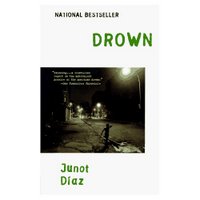
4. One book that made you laugh?
Zadie Smith's White Teeth; some P.G. Wodehouse when I read him as a kid, parts of Drown by Junot Díaz, but ruefully, particularly the story "How to Date a Browngirl, Blackgirl, Whitegirl, or Halfie."
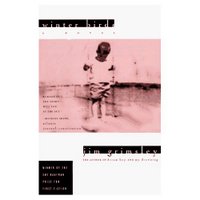 5. One book that made you cry?
5. One book that made you cry?Winter Birds, by Jim Grimsley. This is a writer who knows how to write silently, that is to say he knows how to use silence--he knows when to shut up and trust his story and his readers, and it is truly devastating. As I read this short novel I had to keep reminding myself to breathe. I want to read it again, but am not sure if I could physically undertake it another time.
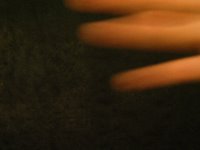
6. One book you wish had been written?

It's sitting in fragments on one of my external hard drives, and I'm unsure if it's really meant to be a book, or a screenplay, or a graphic novel, except I don't draw all that well. Let's move on shall we, before deep remorse begins.
7. One book you wish had never had been written?
Hmm, I do believe in free speech, but if I had to make a choice, Daniel Patrick Moynihan's The Negro Family: The Case for National Action aka The Moynihan Report which is not exactly a book but in the US it has carried, and arguably still does, a damaging weight and imprimatur as a "great book of truth" about African American men and women and a decidely fixed category known as "the African American family".
 8. One book you are currently reading?
8. One book you are currently reading?Books are my M&Ms or is that Lay's potato chips?: I can't just read one...
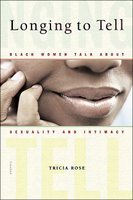
I'm reading Mark Anthony Neal's Soul Babies: Black Popular Culture and the Post-Soul Aesthetic, this is somewhat dated--Neal has an extended section on R. Kelly and why he likes what he's doing in soul music that cannot take into consideration the subsequent reveal of Kelly as a child molester. Even so he treats lightly the questionable relationship between Kelly and the then 15 year-old late soulstress Aaliyah. Nevertheless a worthwhile read. Tricia Rose's Longing to Tell: Black Women's Stories of Sexuality and Intimacy I am struck by the depth of the stories Rose presents here, she must have enviable
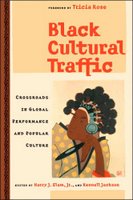 interviewer skills, and she's quite respectful of each story, Black Cultural Traffic: Crossroads in Global Performance and Popular Culture, eds. Harry J. Elam Jr. and Kennell Jackson thusfar a truly compelling contribution to the post-black discourse emergent in the past five years; just finished Hair Stories: Untangling
interviewer skills, and she's quite respectful of each story, Black Cultural Traffic: Crossroads in Global Performance and Popular Culture, eds. Harry J. Elam Jr. and Kennell Jackson thusfar a truly compelling contribution to the post-black discourse emergent in the past five years; just finished Hair Stories: Untangling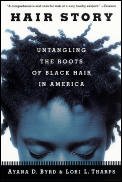 the Roots of Black Hair in America, by Ayana D. Byrd and Lori L. Tharps. Quite informative in parts, paricularly business history, but this could have been tighter. It is repetitive in areas, and often avoids a specific political and/or strucural read of black hair. Sometimes this works, as when they let the facts of suits filed by black women over workplace hairstyles speak for themselves. Still reading Thumbsucker by Walter Kirn, I like his sometimes quirky yet direct use of language. Armor and Flesh: Poems by Mendi Lewis Obadike I read a few poems outloud a day: they're
the Roots of Black Hair in America, by Ayana D. Byrd and Lori L. Tharps. Quite informative in parts, paricularly business history, but this could have been tighter. It is repetitive in areas, and often avoids a specific political and/or strucural read of black hair. Sometimes this works, as when they let the facts of suits filed by black women over workplace hairstyles speak for themselves. Still reading Thumbsucker by Walter Kirn, I like his sometimes quirky yet direct use of language. Armor and Flesh: Poems by Mendi Lewis Obadike I read a few poems outloud a day: they're  calming, focusing, and intriguing--hmm, how many things in life can make that claim? Last and not at all least, Annotations by John Keene. I wrote about my great enjoyment of these last two writers' individual use of language back in July. I've been trying to get to Fran Ross' Oreo, but haven't quite made it yet.
calming, focusing, and intriguing--hmm, how many things in life can make that claim? Last and not at all least, Annotations by John Keene. I wrote about my great enjoyment of these last two writers' individual use of language back in July. I've been trying to get to Fran Ross' Oreo, but haven't quite made it yet.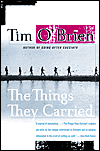
9. One book you have been meaning to read?
The Things They Carried, by Tim O'Brien
10. Now tag five people:
Hmm, hardly any of my writer friends/colleagues have websites, much less blogs (what's up wit dat? uh...I guess they're...um, writing...?), wait, OK a bold mix of poets, writers and visual artists: emchy, Cinqué Hicks, Stacey Nykole, Rachel's Spot, ah, and my late entry: the inimitable Kelly Gabron, as a hopeful prompt to witnessing further presence on that blog.

2 Comments:
Wow, this was an absolutely delicious blog post.
Thank you, it was something of a revelation to read the post after the fact of writing it; my journey thusfar through books.
Post a Comment
<< Home